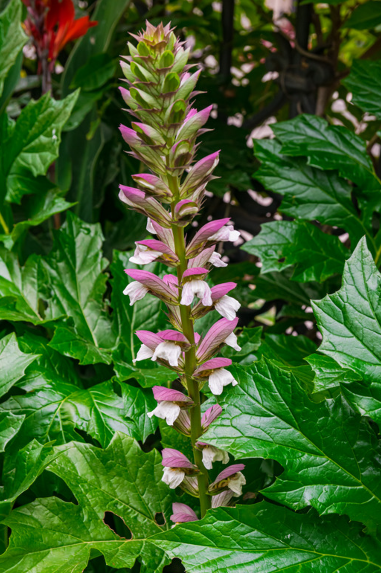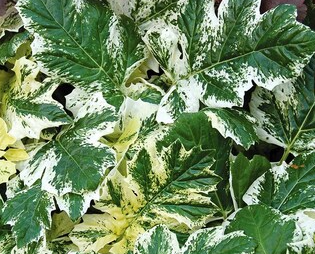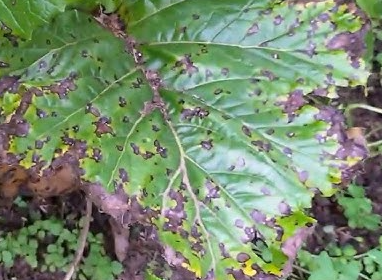Bear's Breeches Plant
Acanthus mollis, or Bear's Breeches, is a moderate-growing perennial, 3-5 ft tall, prefers well-drained soil, full or partial sun, medium moisture, not edible, and no medicinal uses.

Habit
Perennial
Height
0.6-1.2 m
Growth
Moderate
Soil
Well-drained loamy soil
Shade
Full/Part
Moisture
Medium
Edible
No
Medicinal
No
Origin
Mediterranean
Climatic Condition
Temperate
Temperature (°)
15-25°C
Humidity (%)
50-70%
Potting media
Garden soil
Fertilizers
Organic compost
Watering
Moderate watering; allow soil to dry between waterings
Plant Weight
2-5 kg
Flowering Time
Summer
Soil Ph level
6.0 - 7.5
Water Ph level
6.0 - 7.0
Soil EC
Medium
Yield Per Plant
Ornamental use
NPK ratio
10:10:10
life Span
Perennial
Health Benefits
Suggested Grow Media or Potting Mix ?
50% loam, 25% peat moss, 25% compost
Suggested Fertigation/Fertilizers
Fertilize every 6-8 weeks with balanced fertilizer during the growing season.
Common Diseases and Remedies
Leaf spot, Powdery mildew, Rust, Root rot, Aphids
Black or brown spots, powdery coating, wilting, stunted growth
HEALTH BENEFITS
Health Benefits of Bear Breeches (Acanthus mollis)
Bear Breeches, also known as Acanthus mollis, is an ornamental plant with historical medicinal uses. It has been traditionally used for wound healing, inflammation relief, and skin health.
1. Supports Wound Healing & Skin Health
- Leaves and extracts have been used as a poultice for cuts, burns, and wounds.
- Contains anti-inflammatory and antibacterial compounds that help prevent infections.
2. Anti-Inflammatory Properties
- Traditionally used for treating arthritis, joint pain, and swelling.
- May help with muscle aches and sprains when applied externally.
3. Supports Digestive Health
- Some historical uses suggest mild laxative properties, aiding in digestion.
- Helps soothe gastric ulcers and inflammation of the stomach lining.
4. Respiratory Health
- Used in traditional remedies for coughs, colds, and throat irritation.
- May have mucolytic properties, helping to clear mucus from the airways.
5. Detoxification & Liver Support
- Some folk medicine traditions suggest that Acanthus mollis may support liver function and detoxification.
6. Antimicrobial & Antioxidant Benefits
- Contains antioxidants and bioactive compounds that help protect the body from free radical damage.
- May have mild antibacterial properties against certain pathogens.
How to Use Bear Breeches Medicinally
- Poultice: Crushed leaves applied to wounds, burns, or inflamed areas.
- Tea: Used in traditional remedies for digestive and respiratory health.
Caution:
- Limited scientific research supports these benefits, so traditional uses should be approached with caution.
- Always consult a healthcare professional before using it medicinally.

